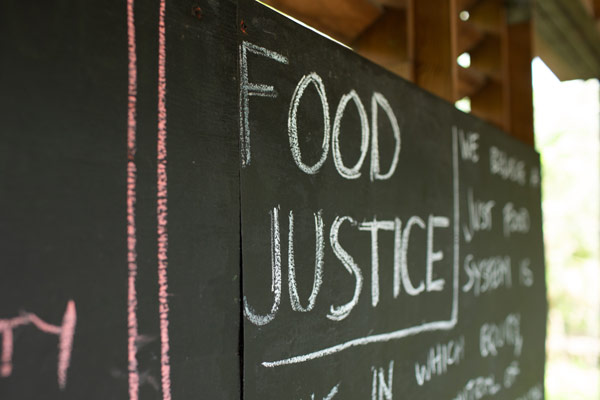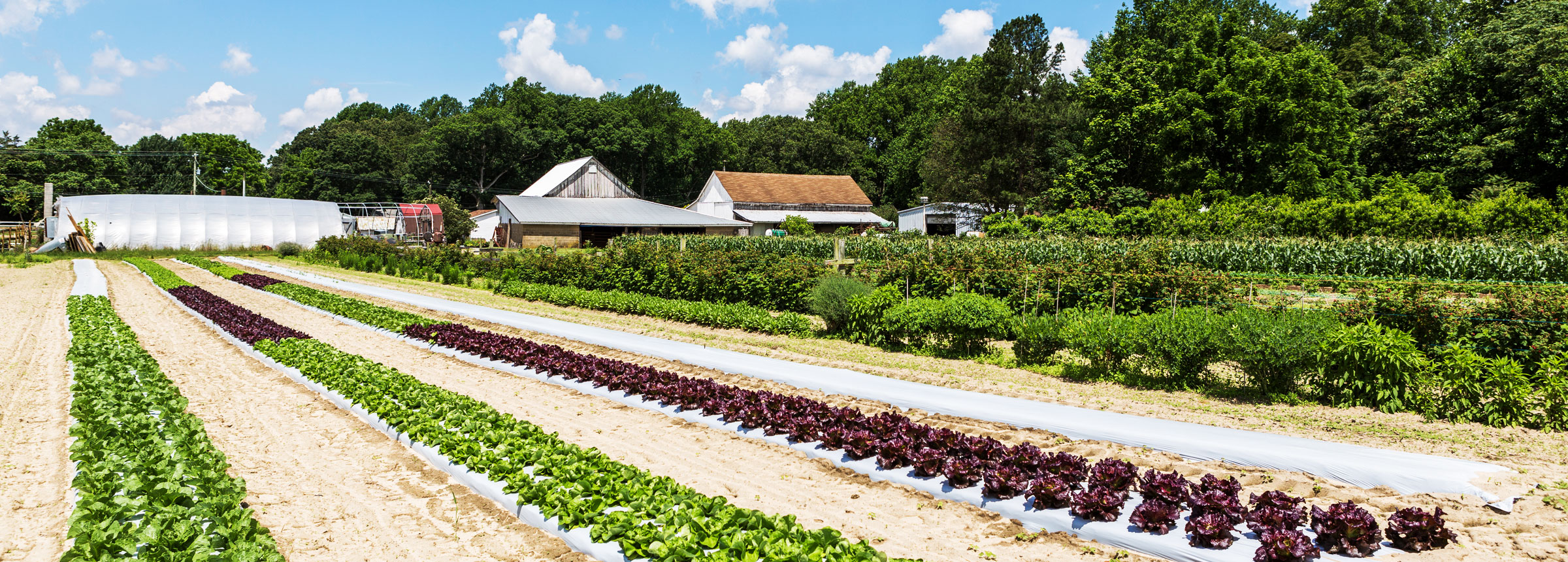
Call to Action on Food System Disruption
Statement urges governments, businesses and philanthropies to act to prevent food disruption during the COVID-19 crisis.
This document was created during the Wallace Center’s National Good Food Network (NGFN) Conference, held March 10-13 in New Orleans. Approximately 50 attendees gathered during an emergency COVID-19 work session to assess how the pandemic would affect the U.S. food system, followed by a group brainstorming session on solutions to mitigate the emerging crisis. Additional NGFN attendees contributed after the conference to the statement, making it a truly collaborative effort. A part of Winrock International, the Wallace Center has worked since 1983 to foster a more sustainable food and agricultural system in the U.S. The National Good Food Network conference is the Wallace Center’s biannual signature event, bringing together hundreds of good food system practitioners from across the U.S. and beyond. For a downloadable pdf of the statement, click here: Wallace COVID Call to Action
We are farmers, farm workers, food hubs, food processors, food businesses, food business incubators, food justice advocates, farmers market operators, organizers and academics. Together we are working to build a just, equitable and resilient food economy that is accessible to all. Local food systems drive the economy of a place, create community, provide jobs and support public health and environmental sustainability. In doing so, they boost resilience to a disruptive shock such as the coronavirus crisis.
Disasters hit the poor and vulnerable the hardest, particularly communities of color. Furthermore, these communities often lack access to the same social support services and networks that aid and facilitate recovery. As events are cancelled and schools, offices and institutions close to slow the spread of the coronavirus, the chain reaction will be swift. Small farmers, food hubs, processors, distributors, caterers, vendors, restaurants and others will lose their markets, and farm and food system workers will lose their income. With schools closed, children may not get the free and reduced-price meals they depend on. Some of the most vulnerable members of our food system — food chain workers — will not only lose their livelihoods but will also face increased risks due to their immigration status. We are seeing these devastating impacts unfold before us as we speak.
Local food systems have a decentralized capacity to produce and distribute food locally, as well as connections to supply food pantries and other emergency relief organizations that serve marginalized communities. As such, they are uniquely positioned to craft the solutions needed to feed our communities during crises.
In order to return food supplies to pre-disaster levels as quickly and equitably as possible, and ensure all groups have adequate access to food and livelihoods in their neighborhoods, we ask governments at all levels, as well as the business and philanthropic communities, to provide assistance to the local food system and to the most at-risk and affected in our communities. We ask that this response be grounded in a commitment to racial equity, as communities of color tend to be on the frontlines of disaster impacts and the most capable of designing solutions to meet their own needs.
We ask that communities care for each other, and refrain from hoarding resources such that others find it difficult to find the food they need.
We recognize that this pandemic presents serious challenges. But it also provides an opportunity to come together in solidarity, share information and develop responses to protect and connect across the food-based economy. We need to ensure that the links in the local food value chain have the funding and infrastructure to continue feeding their neighbors and strengthening their communities. For that to happen, and to ensure local and regional food systems can continue to feed our communities, we need the following ACTIONS:
In support of households:
- Employers, governments and financial institutions: Offer paid sick leave and temporary deferment of loan payments as events and schools are canceled.
- U.S. Department of Agriculture (USDA):
- To assist temporarily food insecure households, approve states to operate a Disaster Supplemental Nutrition Assistance Program (D-SNAP) for households that may not normally qualify.
- Make immediate changes in SNAP to redirect food distribution and allowing online ordering and delivery.
- Authorize schools and sponsors of the Special Summer Food Service Program to offer meals to needy children without congregation, education, or area income requirements.
- Halt SNAP work regulations that were planned to go into effect April.
- U.S. Citizenship and Immigration Services: Freeze changes to the Public Charge rule that went into place February 24, 2020.
- Federal and state governments: Freeze rent and mortgage payments.
- Companies and public institutions: Leverage existing and readily available transportation and storage infrastructure to avoid food loss and move food to where it is needed, for example by using school buses to deliver meals, and large freezer and refrigerator facilities to store food.
In support of farmers, farmer markets and farmworkers:
- USDA: Expand economic loss relief to include small and specialty crop farmers, and those who sell directly through consumer channels.
- Philanthropies and government: Increase emergency funding for food banks and food pantries to pay farmers for food, with a priority for food they can’t sell due to market disruptions.
In support of small businesses:
- Banks, philanthropies, CDFIs, government: Provide immediate, short-term financial relief for community food businesses whose demand has been disrupted by coronavirus containment efforts, such as deferment of loan payment and issuing zero-interest business loans.
This immediate disaster provides an opportunity to strengthen advocacy for policies and investments that significantly elevate resilient and equitable local and regional food systems. While this Call to Action is intended to address the crises unfolding due to COVID-19, we realize that there are long-term structural and systemic barriers that still need to be addressed and held to account. May this moment in time be a tipping point that facilitates strong and decisive actions to respond to the emergency at hand, as well as to continue to elevate and address deeper foundational issues facing our food system.
Related Projects

